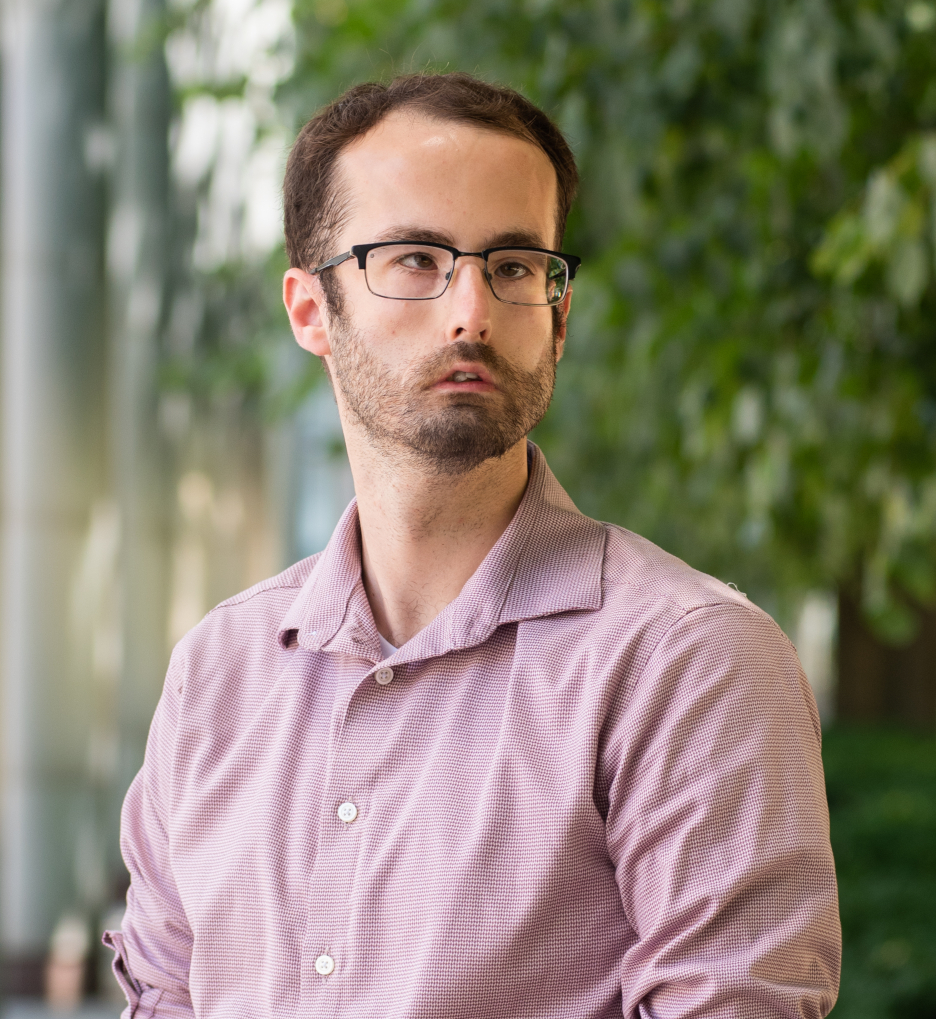
Kaitlin Walsh / AP Images for HHMI
I am driven to improve the health and wellbeing of others, and my past and present research reflect this ambition. I studied the role that genetic background plays in the evolution of phenotypic antibiotic resistance, its genetic basis, and its associated fitness costs as a PhD student in the laboratory of Dr. Richard Lenski at Michigan State University. I am now expanding upon my earlier work as an HHMI Hanna H. Gray Postdoctoral Fellow in Dr. Jacob Scott’s lab at the Cleveland Clinic Lerner Research Institute. Here, I am addressing how other factors – including population size and mutation rate – interact with background, in both bacteria and cancer, to influence resistance evolvability. I am fascinated by the tension between repeatability and contingency in evolution and how these phenomena impact our ability to predict resistance outcomes. I am also immeasurably grateful that I can follow my curiosity for a living!
I am a disabled scientist. I was born with a rare neurological condition called Moebius syndrome that affects the muscles that control facial expressions and eye movement. I cannot smile, frown, close my eyes tightly, or move them side-to-side. I am also missing fingers on both hands and I do not have a right foot; to compensate I wear a prosthetic leg. My disabilities together affect my speech because I am missing part of my tongue, and I cannot move my mouth in a coordinated fashion. Although my disabilities have posed challenges, my identity as a disabled person has nevertheless enriched my academic life in many ways. Through my lived experiences I appreciate that, despite our differences, our curiosity about the natural world is what binds us together; that each of us has a unique story that should be respected and cherished; and that we all should have a voice within science. The way I honor these ideals is through giving my time to advocacy, mentorship, listening, and learning.
I am committed, as a postdoctoral researcher and future principal investigator, to creating and maintaining an environment in which all are welcome and respected – one that is inclusive of race, gender, faith, sexual orientation, ability, and socioeconomic status.
Fellowships, Awards, & Grants
(See CV for complete list)
HHMI Hanna H. Gray Fellowship
June 2021
Postdoc-to-faculty transition award totalling $1.4 million over 8 years. "The Hanna H. Gray Fellows Program represents HHMI’s commitment to supporting talented early career scientists who have the potential to become leaders in academic research. By selecting individuals from groups underrepresented in the life sciences, HHMI seeks to increase diversity among academic faculty. Fellows’ successful careers will inspire future generations of scientists from the United States’ diverse talent pool."
Learn moreNIH Diversity Supplement Grant
July 2020 – May 2021
Award to enhance the diversity of the research workforce by recruiting and supporting students, postdoctorates, and eligible investigators from diverse backgrounds, including those from groups that have been shown to be underrepresented in health-related research.
HHMI Gilliam Fellowship for Advanced Study
September 2017 – August 2020
PhD fellowship totalling $138,000 over 3 years. The goals of the Gilliam program are to ensure that students from groups historically excluded from and underrepresented in science are prepared to assume leadership roles in science and science education, and to foster the development of a healthier, more inclusive academic scientific ecosystem by partnering with faculty and institutions committed to advancing diversity and inclusion in the sciences.
Learn moreExperience
(See CV for complete list)
Graduate Curriculum Redesign Committee
October 2019 – July 2020
I participated in the strategic planning process for the Microbiology & Molecular Genetics Department at Michigan State University, particularly as it pertained to curriculum redesign. The members of the committee and I advocated for a shift away from a curriculum that focused on teaching facts to one that teaches critical thinking; the nature, practice, and philosophy of science; and epistemological thinking. We met with department leaders and discussed introducing a new course – modelled after the R3 Initiative at Johns Hopkins – that focuses on each of these aspects.
Diversity, Equity, and Inclusion Task Force
September 2019 – October 2020
I was a member of a blue-ribbon Task Force with the charge to elevate and embody inclusive diversity with equity within the American Society for Microbiology. To this end, we comprehensively reviewed current policies and procedures to identify deficiencies within the Society that hinder DEI efforts; contracted and worked with a third-party DEI consultant – the Kaleidoscope Group – to develop a Member Perception Survey; and advanced guiding principles and vision statements to direct future work and activities, along with codifying benchmarks for success. We reported our findings and recommendations in a report that was presented to the Board of Directors.
Learn moreIntern at the Michigan Department of Health & Human Services (MDHHS)
September 2018 – January 2019
A motivating goal of mine is to include the evolvability assays that I developed during my dissertation studies with standard antibiotic resistance surveillance methods to generate better predictive models about the spread of antibiotic resistance over time. As a first step to realizing this goal, I interned at the MDHHS to examine the feasibility of combining these two approaches. At the MDHHS, I quantified the evolvability of resistance in Pseudomonas aeruginosa clinical isolates.